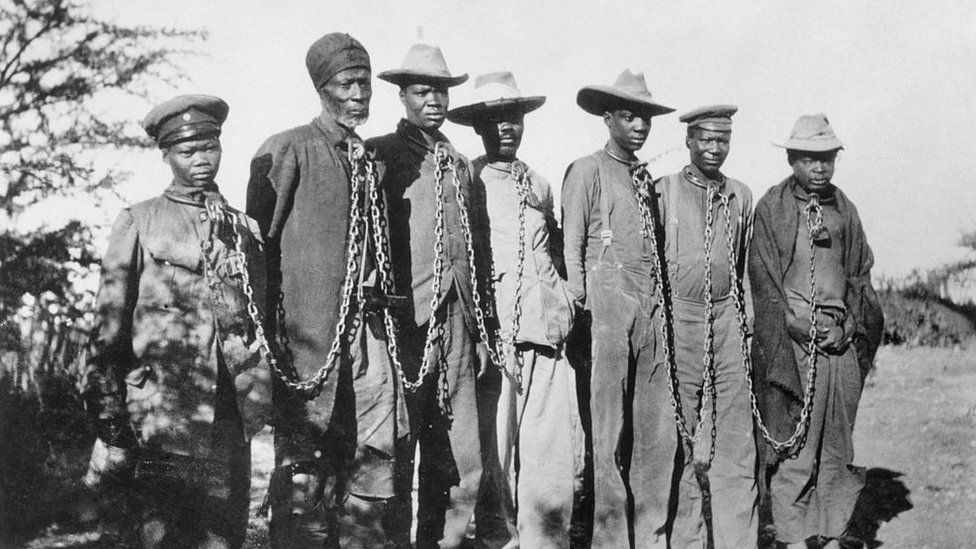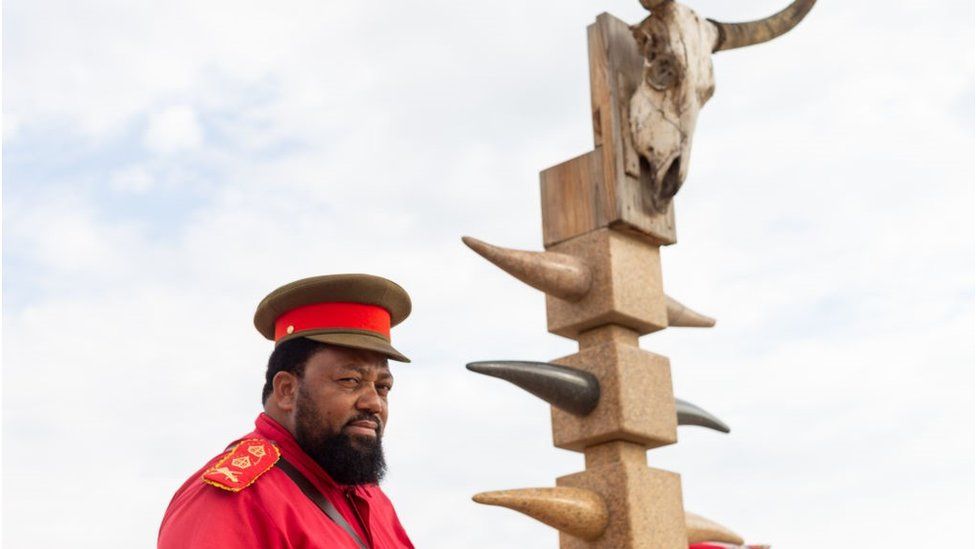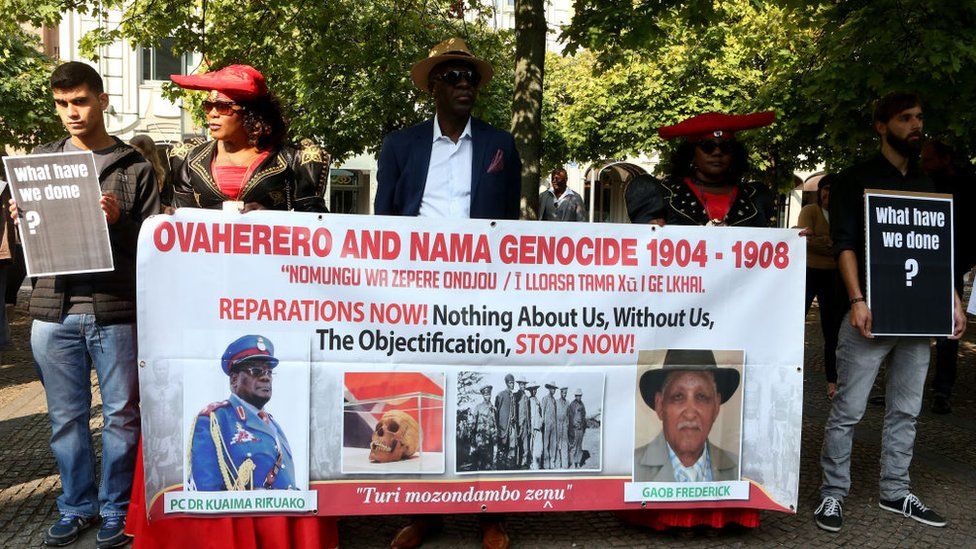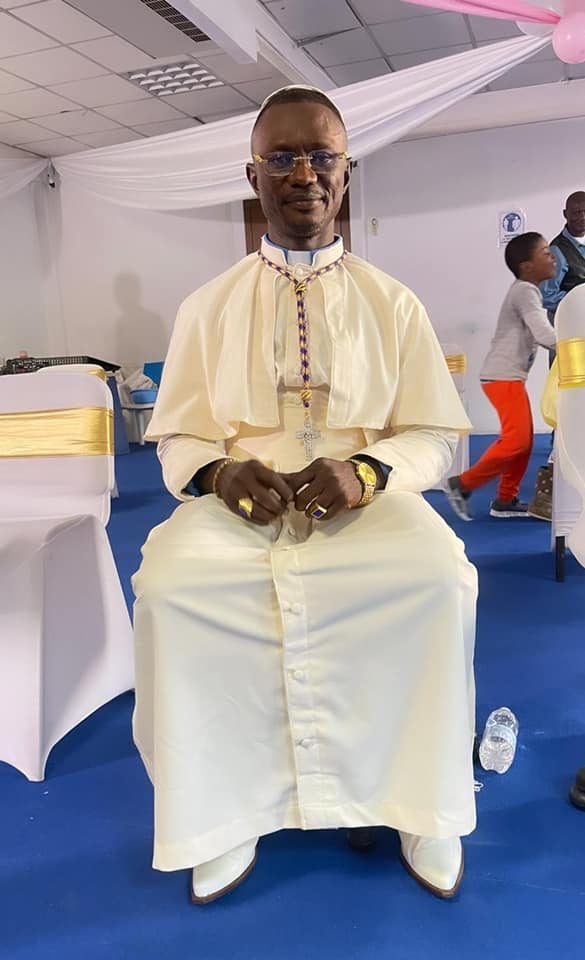NATIONAL ARCHIVE OF NAMIBIAimage captionBetween 1904 and 1908 tens of thousands of Herero and Nama people were murdered
Germany’s long-awaited apology for last century’s mass killing in Namibia has opened fresh questions about how Europe confronts its colonial past in Africa, argues Namibian analyst Emsie Erastus.
Last week, at the completion of negotiations with Namibia, German Foreign Minister Heiko Maas made the announcement that the slaughter his country carried out in its former colony was a genocide.
There was also the promise of development aid worth more than €1.1bn (£940m; $1.34bn).
German colonisers killed tens of thousands of Ovaherero and Nama people in Namibia between 1904 and 1908. This amounted to some 80% of the Herero and over 40% of the Nama. Their land and livestock were also confiscated.
This was punishment for taking part in an uprising.

The media announcement on Friday was stage craft at its best: a carefully compiled statement seemingly to avoid any legal culpability. It came as the largest faction within the Ovaherero community continue to pursue attempts to sue the German state for the genocide.
The message was intended for a sceptical German audience that, according to multiple studies, has little remembrance of the killings or of the country’s past as a powerful colonial force with dominion over modern-day Togo, Namibia, Burundi, and Tanzania.
‘Hollow declaration’
In terms of fully acknowledging its colonial past in Namibia, Germany has always been reluctant to do so. This is despite providing development support to successive administrations since Namibia’s independence in 1990.
A half-hearted apology delivered by a German development minister in 2004, on the 100th anniversary of the start of the genocide, was roundly criticised.

The clamour from the devastated communities for an unequivocal acknowledgement of the genocide, an apology, and compensation became louder. As a result, the two governments had no choice but to address the elephant in the room.
The negotiations may have resulted in the recognition of the genocide, but the declaration is hollow.
To begin with, the statement was made in haste for domestic and other political reasons. As a result, everyone, including the Namibian government, was caught off guard.
When the news of the statement made its way around the world, local chiefs representing the affected communities in Namibia were still being consulted on the conclusion of the recent round of discussions.
Some local pundits have speculated that the time was chosen to seize the spotlight following the French President Emmanuel Macron’s apology to Rwanda for its role in that country’s genocide in 1994.
Second, the settlement has been widely rebuked for failing to achieve the principle reparations demand.
The money Germany will give, which is much smaller than some had hoped, is very specifically meant for reconstruction and development projects.

It is still not clear who will benefit. The agreement was made without the direct participation of the communities affected by the genocide at the negotiating table.
But the development aid itself is also problematic.
Germany made it clear that it is willing to atone for its colonial crimes “without sparing or glossing over them”.
But the country also needs to come to terms with the origins of a racialised view of the world, placing Western authorities at the top and Africans at the bottom.
‘Patronising aid’
In the colonial era, Africans were regarded as “barbarians” who lacked the abilities to bring about economic and technological change, justifying the intervention of the imperial powers.
This view defined how the West perceived and presented Africa in the past, and the echoes of that view may be found today.
Development aid can still be presented in a patronising way, maintaining an unequal relationship.
If it is being seen as an alternative to reparations, with fewer legal ramifications, it does not dismantle the relationship that allowed the genocide to happen in the first place.





Leave a comment